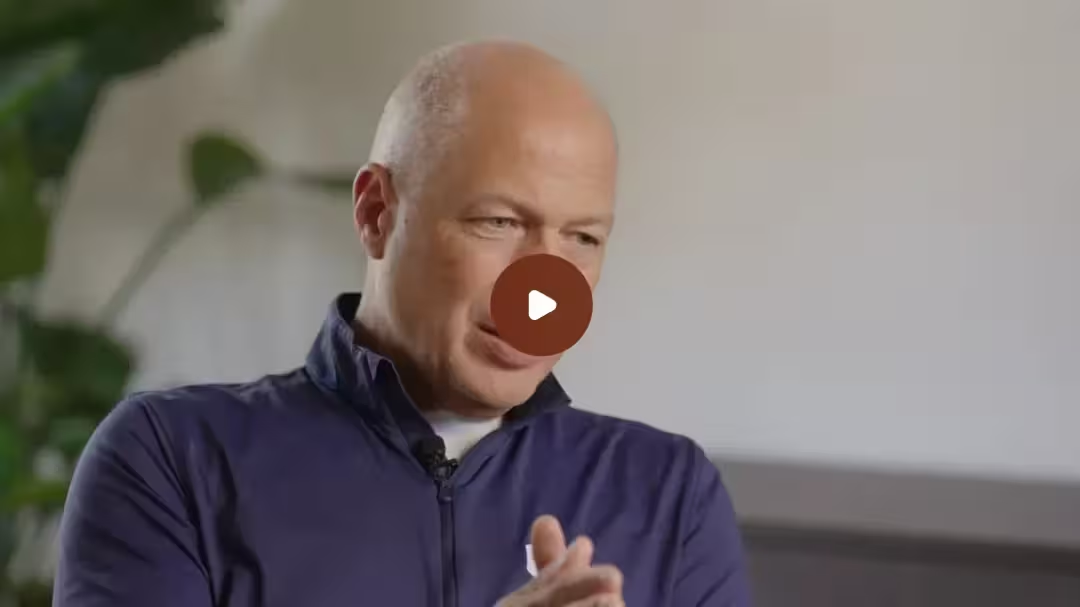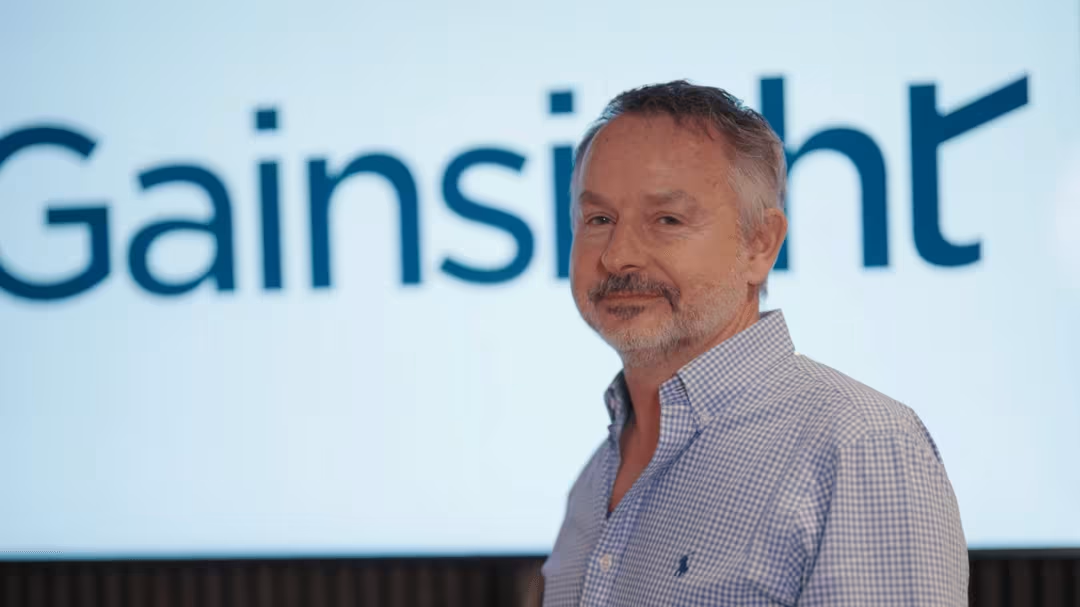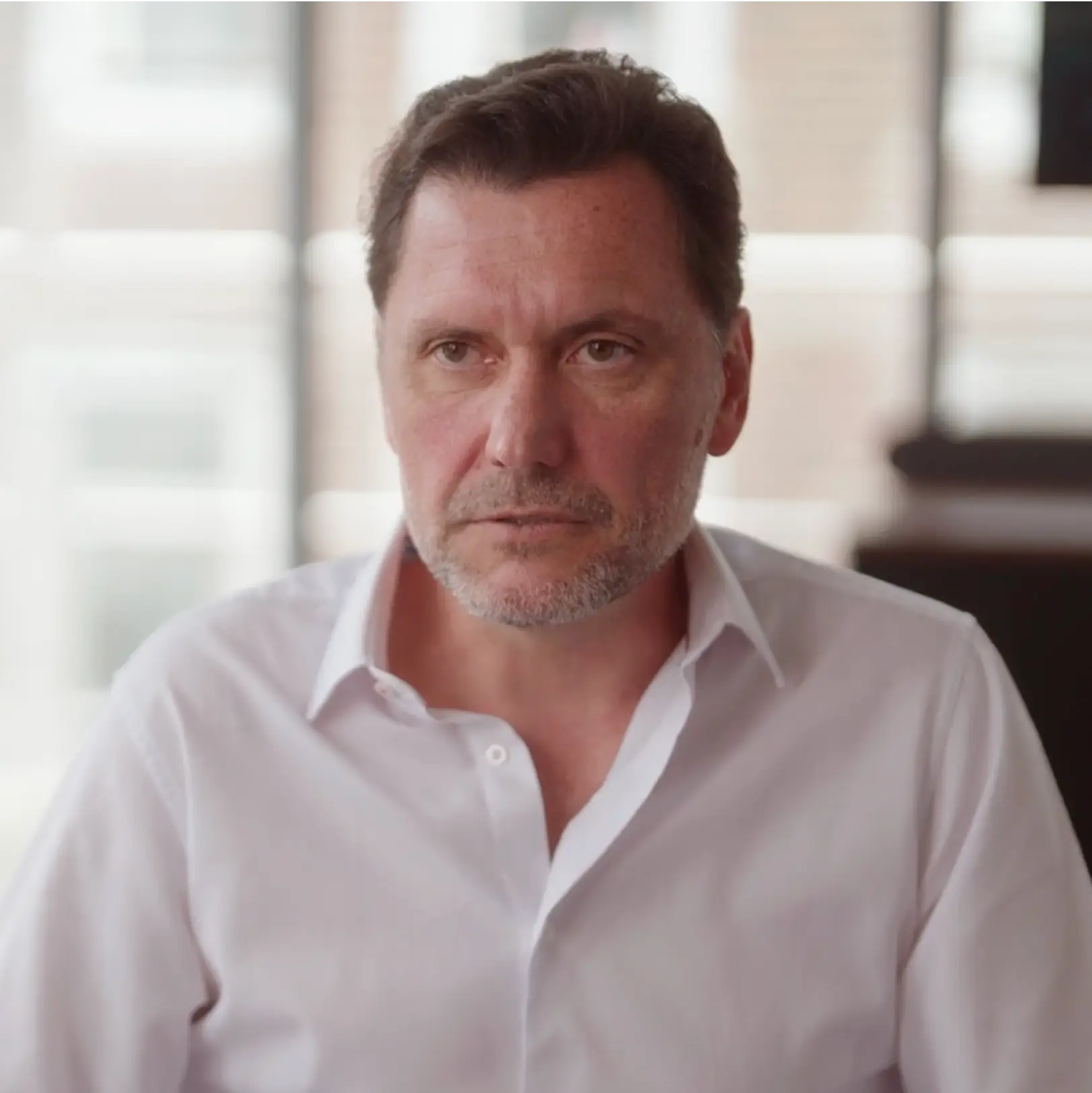
Have you ever heard of a stand up sales ops? Neither had I until I met with Anthony Conrad, Director of Sales Operations at Spammed.co. This was a fantastic interview, looking into how qualitative sales data can be used as fuel for all departments to become more effective. To do this, Anthony told me of how he gets really close sales people he works with and why this is so important for a successful sales ops function. We chatted and exchanged some of the usual Anglo-american banter. The interview began...
Rory Brown (RB): I’m excited about this interview because you have a lot of experience. You’ve been Head of Sales and Marketing, CEO Founder, Head of Product, Director of Sales Operations. Is there anything you can’t do?!
Anthony Conrad (AC): Well, I’m starting to do Open Mic comedy, that is something I would love to do!
RB: Awesome! Let’s start by finding out more about Anthony Conrad and your career to date.
AC: The majority of my time was spent in the American South-East; Raleigh and North Carolina. That is where I really cut my teeth. About seven years ago I met my wife and took the plunge to move down to Bogotá, Colombia. There I had to re-invent myself and figure out this new market. I really dug into sales, sales operations and management from being a CSM, Account Manager and, as you said, founder of a payment start-up. I then returned back to my roots but with a mindset of ‘how do I make this better’ with what I’ve gathered.
RB: Excellent. If we start with your product background, how do you see the role of sales operations and product interacting with each other?
AC: The biggest thing that came to mind when I started working was so many marketers are given something. They are given a product and told to market it, to make people want it. And it is really a backwards way of thinking about it. There’s a reason companies like Apple succeed. It is because they put the user front and centre. They actually sat down with the people they wanted to tap into. Instead of giving them something, they actually asked, “What do you like and dislike? What is your day to day?” They went from being the hero of the story to the guide, showing the user the way forward. And by doing that, the users won’t just love the product, they'll be invested in it. That is how great products come to light.
RB: 'Hero to guide' is a nice way of putting it. Let’s take the role of sales operations. You are dealing with the sales team and you are heavily involved in the conversations they are having with customers. What sort of information do you collect that then goes to product?
AC: There are a number of different things that I take along the way. I listen to these conversations, not just for coaching purposes but to understand the common themes that continually come up. What are the pains? Who are the other players that are mentioned? And also figuring out what clients love. Sometimes companies try to re-invent the wheel. They throw the baby out with the bathwater. And a lot of times clients love certain things, but they are never really asked. And when they are, it often goes unnoticed. We want to hear problems. But we ignore the ‘OMG I love this’. And that is when somebody’s ears should be perking up to make sure we don’t think, “How do we re-invent this?” But rather, “How do we polish that specific feature?”
RB: So, what you are saying is salespeople are trained and created to find difficulties and overcome barriers, challenges and things that aren’t so good. But perhaps we are aren’t getting excited enough about the stuff that people really like about a process or a product.
AC: It is the idea of when you are a hammer, everything looks like a nail. They should be taking a more consultative style to really understand what is good, what is bad, and what could be improved. It is about having an honest conversation. And it is an amazing sales tool when you do this. Churn reduction is huge when you include a user in this type of process and this type of feedback. We shouldn’t be shy about asking these types of questions.
RB: And do you think that is typically the role of sales operations?
AC: I absolutely think it is something that people should be doing. And the reason I have this perspective is from my experience building a financial services product from the ground up. I really draw from that process of getting in and asking questions. One thing I like to use is the process of the five whys. And by asking 'why?' five different times, when you get an answer, you get to the root of the answer as you get further and further along. It is like when you have a little niece or nephew and they nag you 'why, why, why?' They are trying to figure the world out.
RB: Fantastic. And are you supporting this with data? How do you present this to the product team?
AC: Usually when we have these kinds of interactions, I prefer to use call data and analyse certain key words. I also love to use video in these interactions to analyse body language in the response. It is so much more than just notes. The richer and rawer the data, the better. And then it’s about having a feedback loop of going back again and again to see if we’re going in the right direction. Often people think of product as a race car, but really it is a sailboat.
RB: How much work are you doing on adapting the sales process, stages or the frameworks within which deals sit?
AC: It’s all about blending new product roll outs into the sales conversation, and working out how often you follow up and touch base. I love follow-up. Follow up is my favourite part of sales. It is everything in sales. Many people think of sales as a boiler room full of people pounding the phones. But in terms of actually selling a solution, it is a science and not so much an art. It is really being able to listen to that conversation, to have salespeople become subject matter experts, to be able to tell a story and know how to empathise with your client’s pain points. And that is going to be the biggest key to sales: developing these processes and strategies and understanding how to follow up and how to establish yourself as a consultant and not just a salesperson.
RB: A lot of stuff you are talking about here sounds very sales enablement-esque. And for some businesses they separate the two functions. For you, what has that experience of sales ops and sales enablement been like?
AC: I say to my clients, “If you received this call, if you received this email, what would you do?” And if they tell me they wouldn’t reply, or they wouldn’t like it, then I ask them why they’re sending it. I tell them to put themselves in the prospect’s shoes. Understand who this person is. Use the technology that we have put into place. But be able to hack the system and take the untraditional route. One really good colleague of mine, a field rep for many years, still to this day writes hand-written thank you notes. And it is just mind-blowing how effective that human touch is. And that is really where I see operations and enablement really balancing together, figuring out that sweet spot of how they can work together as one cohesive unit.
RB: Moving onto marketing. What sort of information are you giving to marketing and how do they adjust their campaigns and their messaging accordingly?
AC: I was riding along with a client during a demonstration call for their new platform and was taking these great quotes that were coming directly from them, key questions that they would love to know and those doubts that may come to mind. You could build a whole campaign around one question that an individual may have.
This individual was asking if we had a particular functionality. And the answer was yes. But we hadn’t originally brought it up because we were too busy looking at the big picture. We were looking at the forest, and not the individual trees. So, feeding those types of quotes to marketing helps us build our nurture campaigns, helps us delight customers and helps us with our win-back campaign, especially those who may have recently left the platform. Right before a major release, we can reach out to them and say “we know you left, but you left right before the good part.”
A lot of times, marketing is just seen as driving one end of the funnel. But instead of looking it as a funnel, look at it as a bow tie. It’s a continuous feedback loop, growing the account, building the foundation and building the house on top of that. It affects loyalty and reduces churn.
RB: Does your role cover customer success now or are you mainly focused on the sales team?
AC: I do work with all parts organisations, from the BDRs through to close, and then on to success.
Most people don’t remember who their AE was, but they remember their success rep. They can remember them for a good or a bad reason. A CSM who cares, prioritises and follows up can really shine. And your clients will absolutely love the account and the service just based on that. I always think that success reps don’t get enough praise in that sense.
RB: It sounds like you have a broad reach in the business, which is great. I think a lot of people in sales operations are still asking: how broad does this role go? For you, where does your role and the VP of Sales or CRO’s role meet?
AC: For me, I think a holistic approach is the best one, at least in terms of the size of the organisation. Working on a global campaign and working with multiple brands; for me it is a little better to be a Jack of all trades in a sense because there are so many ways that I can really lead. Obviously, a VP of Sales will be driving and stepping in for larger deals. Enterprise is something that we are working on, but for our newest platform it is day to day agencies that we are working with, so understanding the account from cradle to grave is crucial for sales ops. But when you get into larger accounts it may be a little more specialised.
RB: The reason I ask is it sounds like you are quite involved with these people. You are speaking to them a lot, coaching and enabling. You are almost verging on being in a sales coach/sales leader type position as well.
AC: There are times where I almost just want to get on the phone! There was a really memorable call that I did when I first got into the organisation. I called a gentleman in Edmonton. I gave him my pitch, real quick. His response was “You’re the seventh rep who has called me this week selling me the exact same thing.” And I could have gone the route of “Yeah, but we’re different.” But I kind of felt that empathy and I just said to the guy, “I’m so sorry. I know what it’s like. I get a call weekly from 'X company' and I don’t want to talk to them but they just keep calling.”
And when I said this to the guy, he was completely disarmed. He realised he was talking to a human being and gave me the chance to explain a bit more about my solution and what we do. And we ended up scheduling a call. That is where I see the biggest success in any organisation, large or small. Just having that true conversation with people and if you need to put on your apron and get in the kitchen, then do it.
RB: A bit of fun now. What are your favourite and least favourite parts of being a sales operations director?
AC: My favourite part is it's like when a parent sees their child progress. I love working with new reps, and I love working with troubled reps. A rockstar rep is cool, but for me they are very rare to come along. It is almost boring in a way when I listen to those calls. I know they are doing well, I am really happy, I’m glad we’re making money. But I need a problem to solve. And when a rep who was struggling starts to do well, it is like watching your child start to take their first steps. It’s a proud moment as cheesy as it sounds!
My least favourite part is missing the thrill of the hunt, missing the glory that comes with closing that major deal. It is something that you never really lose the taste for.
You can hear more from Anthony on his podcast, Sales & Stanzas.
And if you enjoyed this interview, check out our other posts in the sales ops interview series.


.svg)
.svg)
.svg)
.svg)










